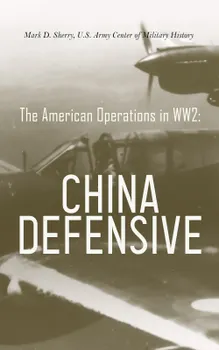World War II was the largest and most violent armed conflict in the history of mankind. Highly relevant today, World War II has much to teach us, not only about the profession of arms, but also about military preparedness, global strategy, and combined operations in the coalition war against fascism. This book follows military operations of the US Army in China from 4 July 1942 to 4 May 1945.
The China Theater of Operations more resembled the Soviet-German war on the Eastern Front than the war in the Pacific or the war in Western Europe. On the Asian continent, as on the Eastern Front, an Allied partner, China, carried the brunt of the fighting. China had been at war with Japan since 1937 and continued the fight until the Japanese surrender in 1945. The United States advised and supported China's ground war, while basing only a few of its own units in China for operations against Japanese forces in the region and Japan itself. The primary American goal was to keep the Chinese actively in the Allied war camp, thereby tying down Japanese forces that otherwise might be deployed against the Allies fighting in the Pacific. The United States and Nationalist China succeeded in forging a coalition that withstood the tests of time. Indeed, Chinese leader Generalissimo Chiang Kai-shek, the Allied Supreme Commander, China Theater, accepted, though reluctantly, U.S. Army generals as his chiefs of staff. This command relationship also endured differences in national war aims and cultures, as well as personalities, until the end of the war. The original policies of President Franklin D. Roosevelt and Army Chief of Staff George C. Marshall succeeded—China stayed in the war and prevented sizable numbers of Japanese troops from deploying to the Pacific.
